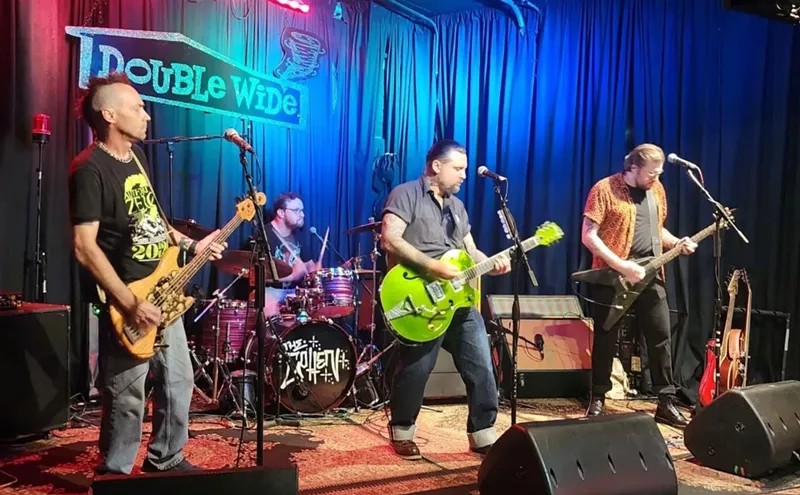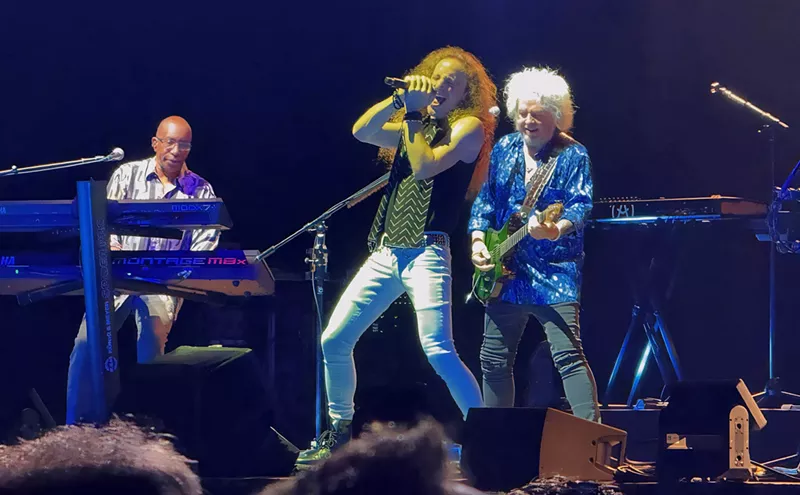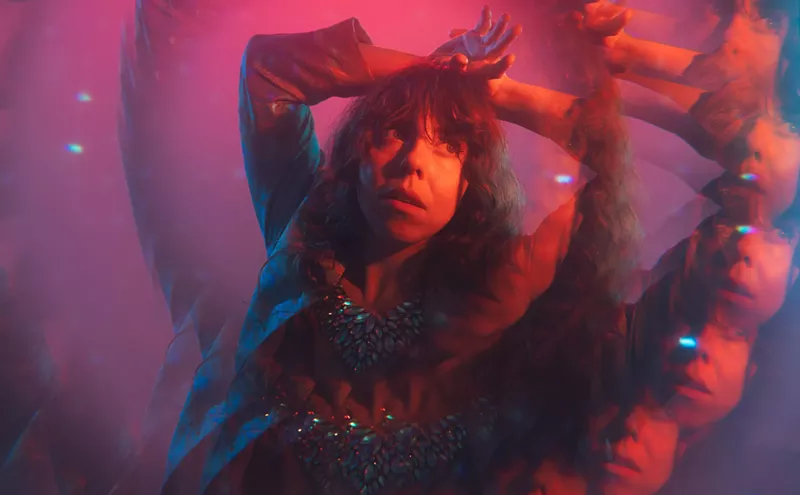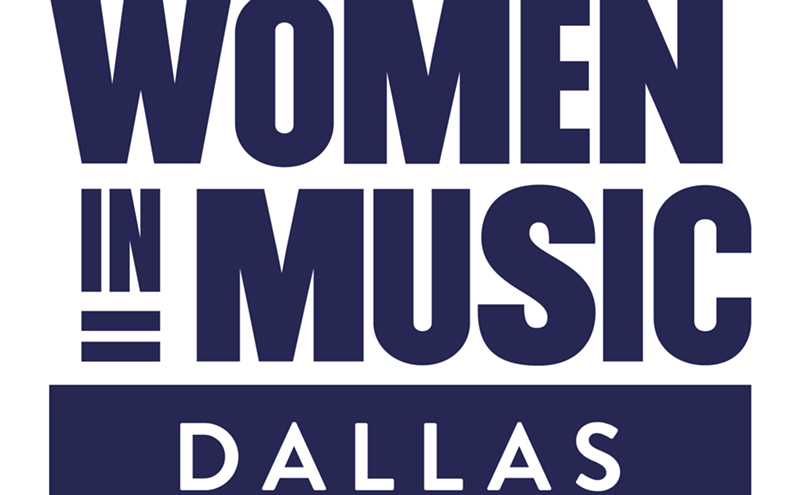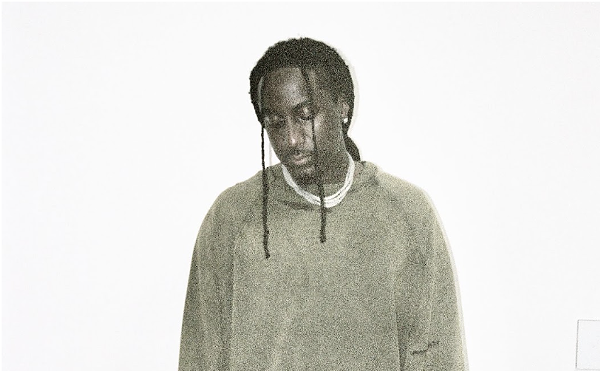On the phone from his Hoboken, New Jersey, home, which he shares with wife and bandmate Georgia Hubley, Kaplan proves that at least one part of his reputation for being difficult is based in fact. When he finishes answering a question -- whether it's about Yo La Tengo's new album And Then Nothing Turned Itself Inside-Out or filming a video with Mr. Show's Bob Odenkirk and David Cross -- he's finished; there will be no more A until there's another Q. He makes it clear from the very beginning that this is an interrogation, not a conversation between two people. Which, as long as you understand and accept the ground rules, isn't a terribly arduous process. The uncomfortable silences bracketing each question and answer become almost routine after half an hour, as necessary to the interview as the things Kaplan actually says.
Contrary to popular belief, Kaplan's rock-crit past surfaces only in situations such as this, when he has to promote a new album. He would, perhaps, agree his pre-band career helps him turn these chats to his favor, if only because he's aware of all the tricks. He remembers the ways and means involved in forcing people to spill secrets they don't wish to share, coercing them into veering off the script. Though Kaplan insists his former occupation has no bearing on his current one, he admits it does come in handy when reading the reviews following each new album's release, picking out the ones in which it's obvious the writer might have listened to the album but never really heard it.
Kaplan laughs knowingly when it's suggested to him that the publicity department at Matador Records (the label that has released the last five Yo La Tengo records, including 1996's double-disc retrospective Genius + Love = Yo La Tengo) has basically already written many of the reviews. He is mindful of the fact that, because of pressure to meet deadlines, the bio accompanying advance copies of And Then Nothing Turned Itself Inside-Out -- laden with quotes from venerable jazz critic Whitney Balliett and references to Ornette Coleman and Don Cherry -- will more than likely be regurgitated in some form or other by dozens of lazy critics. He'll just look for the ones referring to the disc as "Yo La Tengo's jazz album."
"It's not some orchestrated plan," Kaplan says. "We have a double seven-inch that we just released of two jazz songs with three horn players. I think with some of that stuff in the air, I think that's where some of that bio came from. You know, I do think that the influence of my writing career has been overstated. In fact, to me the thing that's really relevant about it is that I'm much more aware of that kind of stuff, the bio appearing in reviews and all that stuff. But as far as the band goes, Georgia and I -- and then later on, all three of us -- make decisions based on what it would be like if we were in the audience, not lessons learned as a writer."
It's an assumption Yo La Tengo has been battling since Kaplan and Hubley formed the band in Hoboken in 1984. (Longtime bassist James McNew joined the group prior to the recording of 1992's May I Sing With Me.) The knock on the group has always been that it makes records to write about, not listen to, that Yo La Tengo plays to critics rather than to fans. And Then Nothing..., more than any of the group's previous efforts, is too personal for that to be true, too close to home to be aimed for a critic's ear. The disc seems to be telling the story of Kaplan and Hubley's marriage, from their first encounter ("Saturday") to their last good-night kiss ("Night Falls on Hoboken"). And if Hubley and Kaplan aren't the main characters of And Then Nothing..., as Kaplan later says of his sister-in-law Emily Hubley's film Pigeon Within (for which Yo La Tengo provided the soundtrack), "It might not be her story, but it's the story of somebody's life."
However, the songs on the album feel too genuine to be about someone else's life. Hubley and Kaplan sing with each other, to each other, with a kind of I-really-mean-it sincerity that's hard to invent. As the music stays hushed and lush for the most part (save for the sprawling "Cherry Chapstick"), Hubley and Kaplan lyrically renew their vows, even making George McRae's disco-era obscurity "You Can Have It All" sound as if it was written specifically for them. And Then Nothing... is a beautiful album, demanding your attention in the subtlest of ways, daring you to invade a married couple's life. It almost sounds as if Hubley and Kaplan wrote these songs for no one else to hear but each other. It's a labor of love, quite literally.
"We spent a little longer on it," Kaplan admits. "I think once we knew the songs were going to take a different kind of shape, [end up on] the slow side of things...No, let me rewind a little bit. What was different? Not that much. That's the thing. I mean, I think the results are different, but our approach was kind of similar. I think some of the use of instruments on this record is different from previous records. But it wasn't like a self-conscious thought that, 'On this record, let's do this differently.' The songs led us to these things, and the studio had instruments that we were having fun trying to play. None of which strikes me as that different from the previous way we've made records."
Like their previous albums, And Then Nothing... certainly wasn't intended to impress Kaplan's former peers, although it's hard to imagine that not happening. If anything, the reverse is true: Kaplan is nothing more than a fan himself, someone whose passion for music led him first to music journalism and later to writing his own songs, anything to get him closer to the feeling listening to records and seeing bands perform gave him. The only thing Kaplan really learned when he was a music critic is that he wanted to be playing the songs himself. He wanted to be the one who gave other people that feeling.
But he always remained a fan. The point is driven home by the diverse array of covers that appear in the band's live sets and on its records, including songs by The Kinks, Wire, Daniel Johnston, The Urinals, The Ramones, Jackson Browne, The Beach Boys, and dozens of others. They play the songs they'd want to hear if they were in the audience watching Yo La Tengo, or any other band. "I've always enjoyed when I go see bands and they pull out a cover song that seems to come out of left field," Kaplan says. "And I'm sure that's where the inspiration to do that ourselves comes from."
In the early part of Yo La Tengo's career, many assumed the band's inspiration was derived from one source: the Velvet Underground. It didn't take a giant leap of the imagination to make the connection: The group's droning songs and Kaplan's mumbled delivery definitely bore more than a little resemblance to Lou Reed and company. (When Yo La Tengo subbed for the Velvet Underground in the 1996 film I Shot Andy Warhol, it wasn't much of a stretch.) And if the band wasn't being accused of being the Velvet Underground's mirror, it was being charged with resting much of its weight on other people's songs. To some, Yo La Tengo was a glorified cover band, spending too much time digging in the bins for obscurities and not enough writing its own material.
While there may have been some truth to both allegations at one time, there isn't now. The group's VU fetish has long since been abandoned, and after 1990's Fakebook -- which counted only six originals among its 16 tracks -- the band has mainly stuck to its own songs, at least on record. As the albums since Fakebook (May I Sing With Me, 1993's Painful, 1995's Electr-O-Pura, and 1997's I Can Hear the Heart Beating as One) have shown, Yo La Tengo is among the most consistent groups around, not worrying about singles as they continue to hit doubles and triples. The band finds the sweet spot between challenging and accessible each time out, as capable of writing three-chord, three-minute gems such as "Sugarcube" (off I Can Hear the Heart Beating as One) as seven-minute organ-and-feedback duels like "Big Day Coming" (off Painful). As Kaplan says, they never intend for songs to end up so far apart on the spectrum. They're just glad to remember all of the songs they write.
"We've gotten into this way of writing that we've always enjoyed," he says. "Writing isn't exactly what we're doing. A lot of times we're just playing and letting things take shape. Writing on the road, were that to happen, seems more like a solitary pursuit: one person in a hotel room with a guitar working on a song, which just isn't the way we work. We have played things at sound check, just kind of jamming, that we wish we'd remember. But we don't -- the tape's not rolling. In a sense, we're writing in disappearing ink."
Though the band has established that its own songs can hold their own as well as The Kinks and Bob Dylan songs that popped up on earlier albums such as 1986's Ride the Tiger and 1989's President Yo La Tengo, for Kaplan, the three members of Yo La Tengo are still the people he writes for. He doesn't have to prove anything to anyone but them. Kaplan says he's happy as long as he can continue to surprise McNew and Hubley, and especially himself. As he learned on And Then Nothing..., even after more than 15 years, it can still happen.
"Two of the songs that are on the record -- 'You Can Have It All' and 'Tired Hippo' -- we had recorded for a John Peel session a while ago," Kaplan explains. "And it was really Georgia who was most interested in us rerecording those songs for the record. I think I probably felt like, 'Well, you know, we already did those songs. Let's do things we haven't done yet.' But they came out so differently than the versions on the Peel session that it became sort of doubly exciting to hear the way the songs just kept growing and developing. Those two [stand out] because we had cut kind of a clear benchmark with the earlier recordings, but all of them are like that."



